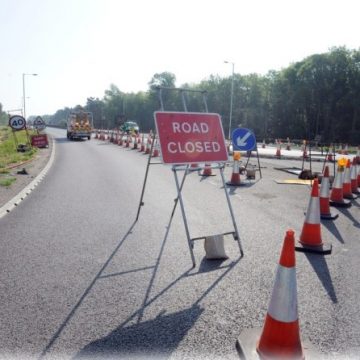The landscape of transportation and infrastructure in the UK is ever-evolving, over the years we’ve seen many iterations the EToN, subsequently replaced by permit schemes, then the introduction of Street Manager. The current innovation gaining traction is the concept of lane rental. This strategy, aimed at addressing the challenges posed by roadworks and utility maintenance, involves charging utility companies and roadworks contractors for the time and space they occupy on the road, particularly during peak hours. In this article, we’ll explore the fundamentals of lane rental, its objectives, and the impact it has on the UK’s highways.
Objectives of Lane Rental
Ultimately, as with most transport innovations, the aim of lane rental schemes is to alleviate traffic congestion caused by roadworks, a perennial issue in densely populated urban regions. By imposing charges during peak hours, the scheme encourages utility companies to expedite their projects, significantly reducing the overall impact on traffic flow.
The financial implications promote improved project planning and execution, ensuring organisations are motivated to complete works promptly to avoid accruing additional costs. The result should be a more streamlined and efficient approach to roadworks.
Additionally, these schemes encourage utility companies to schedule their activities during off-peak hours, thus minimising disruption to commuters during busy periods. This not only aids in maintaining a smoother traffic flow but also enhances overall road safety.
The impact on utility companies is significant and the concept of lane rental has been met with a somewhat mixed response.
Financial Considerations:
The financial implications of lane rental can be a significant factor for utility companies. The charges incurred during peak hours provide a direct economic incentive for these entities to manage their projects effectively, optimising both time and resources.
Operational Efficiency:
Lane rental encourages utility companies to adopt more efficient working practices. With the financial pressure to complete projects swiftly, companies may invest in advanced technologies and techniques to expedite their tasks, leading to improved overall operational efficiency.
The impact on road users, including but not limited to commuters, is hugely positive enabling much more accuracy when planning journeys by reducing congestion and improving traffic predictability.
Reduced Congestion:
From a commuter’s perspective, the primary benefit of lane rental is a potential reduction in congestion. Quicker completion of roadworks and more strategic scheduling contribute to a smoother and less disruptive driving experience.
Enhanced Predictability:
Lane rental fosters greater predictability for commuters. With utility companies incentivized to work during off-peak hours, drivers can anticipate reduced disruptions during their daily commutes, leading to improved travel planning.
Lane rental is a dynamic approach to managing roadworks in urban areas. Instead of a static fee, utility companies are charged based on the time they spend working in a particular lane and during specific periods, often targeting high-traffic hours. The underlying principle is to incentivise companies to complete their projects swiftly and efficiently, thereby minimising disruption to the flow of traffic.
Challenges and Considerations
 While lane rental has demonstrated positive impacts, challenges exist. Some critics argue that passing on the costs to utility companies may subsequently result in increased expenses for consumers, as these costs are often reflected in service charges. Additionally, striking a balance between encouraging efficiency and preventing corners from being cut is crucial to ensure the quality and safety of infrastructure projects.
While lane rental has demonstrated positive impacts, challenges exist. Some critics argue that passing on the costs to utility companies may subsequently result in increased expenses for consumers, as these costs are often reflected in service charges. Additionally, striking a balance between encouraging efficiency and preventing corners from being cut is crucial to ensure the quality and safety of infrastructure projects.
In conclusion, Lane rental is a proactive strategy aimed at addressing the perennial issue of traffic congestion caused by roadworks in the UK. By introducing financial incentives for efficiency, this approach seeks to strike a balance between infrastructure development and the smooth flow of traffic. As technology and urban planning continue to evolve, lane rental stands as a testament to the UK’s commitment to finding innovative solutions to enhance the overall transportation experience for its citizens.
As the UK’s leading supplier of Street Works solutions, Symology’s solutions have been helping our customers for many years, (Highways Magazine – Firm wins council praise for Lane Rental solution). Symology’s latest solution, Aurora, can also easily manage lane rental schemes as standard, helping customers manage their processes and supporting their lane rental journeys. Facilitated by automating tasks, reducing administration, and improving communication, Symology’s Aurora saves time, money, and frustration for everyone involved making Aurora the must have tool for any authority looking to optimise their lane rental operations.
If you would like to arrange a demonstration feel free to contact us sales@symology.co.uk 0808 196 8693.









